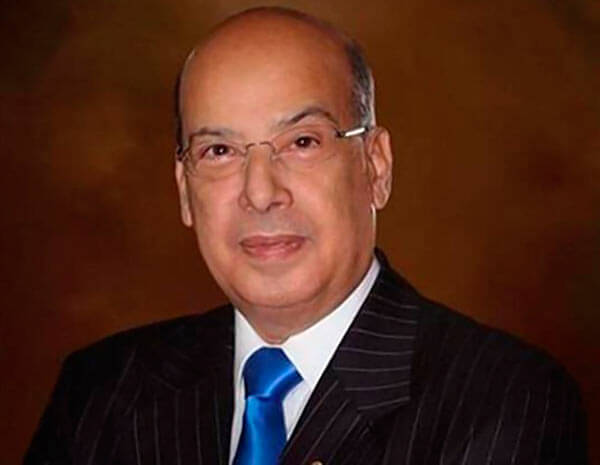Antigua
LIAT has implemented a security surcharge on tickets in response to rising security demands and spiraling security costs. The new security surcharge of US$1.25 per one-way trip applies to all passengers, including children and infants, on all LIAT flights, the airline said in a statement recently.
“Heightened airline and airport security over the last 10 years has resulted in rising security demands on airlines. Additional security measures at many airports have been introduced including extra baggage searches and increased security around aircraft while on the ground,” the airline said.
“Over the past several years security costs have been climbing and LIAT has been absorbing these costs in an effort to cushion the effects on its customers. With the introduction of the security surcharge, LIAT hopes to recoup some of the additional security costs,” the statement said.
The carrier said it joined more than 100 airlines worldwide that introduced similar charges since 2001.
Bahamas
Former Minister of National Security Tommy Turnquest said yesterday he found it “amazing” that Deputy Prime Minister Phillip Brave Davis would say that no one in the country is safe from crime after his aide was shot recently.
Turnquest said this is the same Progressive Liberal Party (PLP) that blamed him every time a crime happened.
One of the DPM’s aides, Sergeant Andrew Sweeting, was shot recently and remained hospitalized. Davis told reporters, “Crime is still unacceptably high and what it tells us is that none of us are safe from what is going on in our country today and it means that all of us must come together again to make a concerted effort to stop this scourge of crime.”
In the lead up to the May 2012 general election, the PLP placed billboards about the record number of murders under the Ingraham administration at various roundabouts on New Providence, including in tourists areas.
The billboards read, “Under the FNM government 490 plus murders”. When some of the billboards were taken down on the instruction of the Ministry of the Environment, Davis accused the then government of “strong arm tactics.”
Barbados
Opposition Leader Mia Mottley has described as “unprecedented,” the manner in which Police Commissioner Darwin Dottin was sent on leave pending his retirement in the public interest. Media reports said that the Police Service Commission (PSC) took the decision recently and has since named Assistant Commissioner of Police Tyrone Griffith to act as interim head of the police service.
Dottin has not commented on the PSC decision.
“In my view it is an assault on one of the key institutions that is required to protect our democracy and our people. It is disconcerting that the people of Barbados would learn of this development as an unsourced story on radio.
“Both the prime minister and the attorney general have a duty to come urgently and explain to the people of Barbados why the Commissioner has been so shabbily treated after the Force was showered with praise only last week for a job well done,” she said in a statement.
Dottin, 63, has been head of the police service here for the past nine months and Mottley said the announcement of his removal was unprecedented in the history of modern Barbados.
“This is another aspect of the rapidly emerging Barbados with a type of leadership to which we are not accustomed and which we cannot fathom”.
Mottley said the planned national consultation on the economy, should also be used to discuss “the alarming rate of decline at all levels and in all spheres in the country. Bajans simply feel that Barbados today is on the wrong track and moving in the wrong direction,” she said in her statement
Guyana
The government of Guyana is compensating more than two dozen protesters injured when police opened fire on them in the town of Linden last July.
Linden’s Administrative Chairman Sharma Solomon says payouts are capped at US$5,000 for those injured, an amount he called inadequate. Protesters say they will go to court to seek a higher amount.
Three people were killed in the accident, and survivors of the victims are receiving about US$15,000 each. The crowd had been protesting a plan to increase electricity rates by nearly 30 percent, a proposal that has since been put on hold.
The payouts began on yesterday, with opposition legislators accusing the administration of President Donald Remoutar of ignoring the economic development of the southwest bauxite mining town of Linden.
Haiti
Haiti is receiving US$35.5 million from the Inter-American Development Bank to improve drinking water services in the Caribbean nation’s gritty capital of Port-au-Prince. The grant will support a program created in 2010 with the help of the bank and the Spanish Cooperation Fund in Water and Sanitation in Latin American and the Caribbean.
The program aims to cut losses from leaks, clandestine connections and unpaid bills. It also seeks to improve revenue to cover operational expenses. The effort will be carried out by Haiti’s national water and sanitation agency and a water company that serves the Port-au-Prince area.
Jamaica
Jamaican air traffic controllers are back on the job after a recent sick-out in a pay dispute. During the two-day protest, the island’s civil aviation agency called in teams of supervisors to man control towers. Officials say safety was not compromised at Jamaica’s international airports and air fields. The disgruntled controllers returned to work after Jamaica’s Supreme Court issued an injunction at the request of the government ordering them to report to their jobs.
The Jamaica Air Traffic Controllers’ Association is still demanding a salary increase. The association argues that controllers are operating under “severe stress” and are in serious need of a raise. Other Jamaican unions have previously agreed to public sector wage freezes.
St. Lucia
Prime Minister Kenny Anthony is proposing major changes to the regional educational system in order to reduce the growing problem of unemployment among young people. He made the recommendations in an address to more than 150 youth attending a regional conference hosted by the Caribbean Youth Empowerment Program, which highlights challenges facing youth at risk in the region, at a three-day conference recently.
Anthony contends that training is not the sole responsibility of the state and cited the need to make better use of the available learning institutions.
He called for targeted interventions to help young people in the acquisition of skills that combine training with employment.
“As far as I am concerned if students stay in school longer, perhaps an additional two years in postsecondary school education, then the employment rate would most likely decline,” he suggested.
The Prime Minister lamented that there were hundreds of under-skilled school drop outs, who cannot obtain gainful employment. In this regard, he outlined changes to be implemented in the education system and called for more accountability from the learning institutions.
“We must not be afraid of change in the education system: curriculum, technology and the delivery of technology cannot simply remain stagnant. There must be a new level of accountability, expected from the schools and agencies charged with administering the delivery of education. There must also be a willingness to experiment in areas where we continue to record failures,” he said.
Trinidad
Two investigative journalists and an editor have resigned from the Trinidad Guardian newspaper for what they alleged is political interference in the newspaper.
Public Affairs Editor Dr. Sheila Rampersad, reporters Anika Gumbs-Sandiford and Denyse Rene resigned for what they also say was the sidelining of its editor-in-chief Judy Raymond.
Staffer at the newspaper, the oldest daily in the country said there have been complaints about several articles about allegations of corruption in the PP Government.
They claim that the editor-in -chief was informed that the paper should not run any stories criticizing anyone unless the journalist had verified all the facts in the story with the person (criticized) first.
Journalists claim new rules were being put in place to vet stories.
The political interference is seen as a blow to press freedom and democratic principles in this country, according to the Media Association of Trinidad and Tobago (MATT).
Sources say that two government officials met with the Guardian board of directors to discuss the editorial direction of the newspaper.
They reportedly threatened to pull all advertising revenue from the newspaper.
Compiled by Azad Ali























